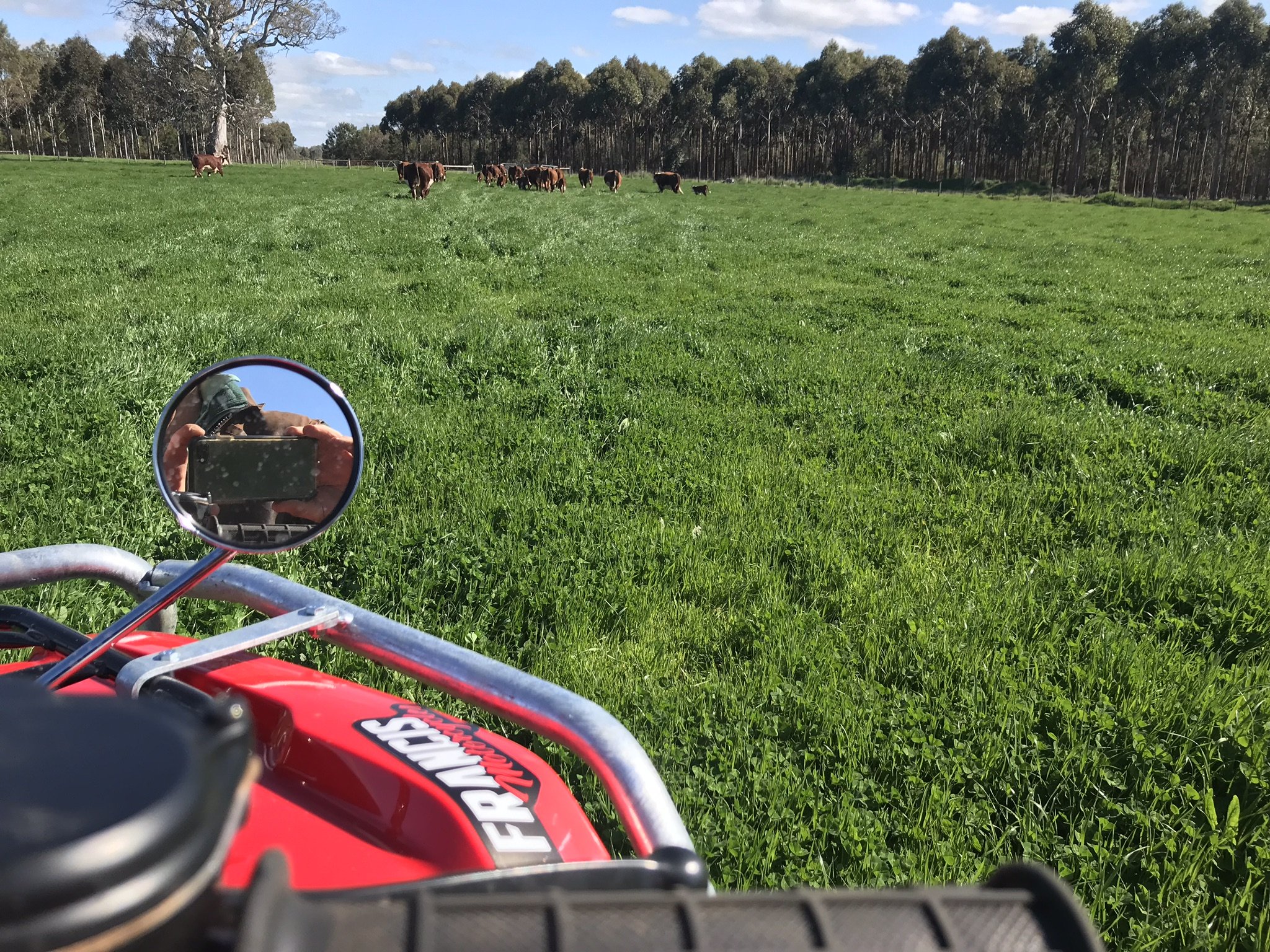Farming Operations
Livestock: Sheep & Cattle
Jigsaw Farms grazing operation consists of sheep (fine wool merinos and prime lambs) and beef cattle.
We run a fine wool merino system that is based around 20,000 ewes. The male offspring of these ewes produce wethers for either our own wool producing operation or what is increasingly more likely for the MENA (Middle Eastern and North Africa) markets. We have our own Merino stud. Our aim is to move to a true dual purpose merino. We are focusing on both muscle and genetic fat in our selection process.
Our cattle operation consists of 550 cows and replacements. We run a criss-cross breeding program, using Poll Hereford and Angus genetics. This is to maximise hybrid vigour. We have our own Poll Hereford stud. We focus on moderate adult size cattle with below average birthweight calves, but with top 20% 400 & 600 day weights as a breeding objective.
Grazed paddocks run at an average of 20-22 DSE per hectare. This is close to double the district average and in the top 5% for the area. The farms operate at over 15,000 DSE per labour unit. Farm planning , extensive internal laneways and a reliable water delivery system help to reduce labour.
We are constantly looking for ideas that lower our methane output from our stock such as increasing growth and reproductivity levels.
From a grazing point of view, if you improve fecundity levels to increase lamb or calf numbers on the ground per breeding unit, you will be more profitable , your methane impact will be lower and it will cost less to run that animal because it will be a better converter of the feed put down its throat.
CARBON SENSE DEFINITELY MAKES ECONOMIC SENSE.
PASTURE
Growing grass and managing it well is core to our business. Jigsaw Farms has a high input grazing system where of Phalaris, Fescue, Perennial Ryegrass and clover mix perennial pastures, along with the water systems, are the life blood of the farms. We have an active pasture renovation program, with regular soil tests and pasture analysis. Newer perennial pastures are being sown that will make better use of summer rainfall events, predicted to increase with climate change. Traditional annual grasses are on the way out, in favour of these perennials, predominantly Holdfast GT Phalaris and strategic use of perennial rye grasses. This reduces the need to buy in supplementary feed.
Water storage
A critical part of our high input farming operation is an efficient and reliable water system. We have moved away from multiple small dams with high evaporative drying rates of up to two metres per summer. Instead, there are fewer dams that are bigger and deeper, where the water stays cooler and evaporative rates are slower. This series of deep water storage dams range from 20 to 45 megalitres in size. They provide water needed to fill a series of 2 to 3 megalitres sized turkey nest dams or tanks that are positioned on the highest points around the farms. Airwell and solar pumps push water up to these dams, which then naturally reticulate the water to troughs in the paddocks.









